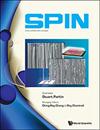基于差分驱动强化学习的量子态制备方法
IF 1.3
4区 物理与天体物理
Q4 PHYSICS, APPLIED
引用次数: 0
摘要
由于双量子比特系统的状态空间大,现有的量子态制备方法采用阶梯奖励函数,收敛速度慢,难以在有限条件下制备出高保真度的理想目标量子态。为了解决上述问题,通过改进奖励函数和动作选择策略,提出了一种差分驱动强化学习(RL)算法,用于双量子位系统的量子态制备。首先,对双量子比特系统的量子态制备问题建立了模型,并对量子门的类型和量子态演化时间进行了限制。在准备过程中,设计了加权微分动态奖励函数,帮助算法快速获得最大期望累积奖励。然后,采用自适应的[公式:见文]贪心动作选择策略,在一定程度上达到探索和利用的平衡,从而提高最终量子态的保真度。仿真结果表明,该算法可以在有限条件下制备出高保真度的量子态。与其他算法相比,它在收敛速度和最终量子态保真度方面都有不同程度的提高。本文章由计算机程序翻译,如有差异,请以英文原文为准。
A Quantum States Preparation Method Based on Difference-Driven Reinforcement Learning
Due to the large state space of the two-qubit system, and the adoption of ladder reward function in the existing quantum state preparation methods, the convergence speed is slow and it is difficult to prepare the desired target quantum state with high fidelity under limited conditions. To solve the above problems, a difference-driven reinforcement learning (RL) algorithm for quantum state preparation of two-qubit system is proposed by improving the reward function and action selection strategy. Firstly, a model is constructed for the problem of preparing quantum states of a two-qubit system, with restrictions on the type of quantum gates and the time for quantum state evolution. In the preparation process, a weighted differential dynamic reward function is designed to assist the algorithm quickly obtain the maximum expected cumulative reward. Then, an adaptive [Formula: see text]-greedy action selection strategy is adopted to achieve a balance between exploration and utilization to a certain extent, thereby improving the fidelity of the final quantum state. The simulation results show that the proposed algorithm can prepare quantum state with high fidelity under limited conditions. Compared with other algorithms, it has different degrees of improvement in convergence speed and fidelity of the final quantum state.
求助全文
通过发布文献求助,成功后即可免费获取论文全文。
去求助
来源期刊

Spin
Materials Science-Electronic, Optical and Magnetic Materials
CiteScore
2.10
自引率
11.10%
发文量
34
期刊介绍:
Spin electronics encompasses a multidisciplinary research effort involving magnetism, semiconductor electronics, materials science, chemistry and biology. SPIN aims to provide a forum for the presentation of research and review articles of interest to all researchers in the field.
The scope of the journal includes (but is not necessarily limited to) the following topics:
*Materials:
-Metals
-Heusler compounds
-Complex oxides: antiferromagnetic, ferromagnetic
-Dilute magnetic semiconductors
-Dilute magnetic oxides
-High performance and emerging magnetic materials
*Semiconductor electronics
*Nanodevices:
-Fabrication
-Characterization
*Spin injection
*Spin transport
*Spin transfer torque
*Spin torque oscillators
*Electrical control of magnetic properties
*Organic spintronics
*Optical phenomena and optoelectronic spin manipulation
*Applications and devices:
-Novel memories and logic devices
-Lab-on-a-chip
-Others
*Fundamental and interdisciplinary studies:
-Spin in low dimensional system
-Spin in medical sciences
-Spin in other fields
-Computational materials discovery
 求助内容:
求助内容: 应助结果提醒方式:
应助结果提醒方式:


